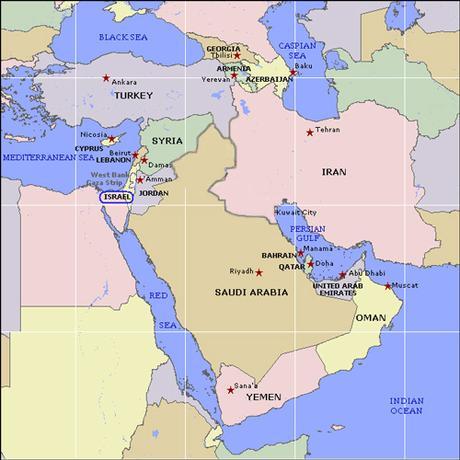
By Bahaa Eddin Al Dahoudi, CIPE-Atlas Corps Think Tank LINKS Fellow
What future awaits the Middle East? This question remains pivotal following the outbreak of the Arab revolutions four years ago. It keeps popping up as regional developments arise, especially with the decline of democracy and presence of revolutionary forces in many Arab countries. The region’s resort to military tools is increasing due to the rise of terrorism, violence, and political polarization, a decline of charismatic leaders, and a lack of support for institutional structures and democratic transitions. In a Middle East where “there is no winner,” two vital questions emerge: Is the Arab revolution the reason behind the chaos and collapses? And, what are the future scenarios for this inflamed region?
I would argue that the Arab revolution is not the reason behind the current chaos. Knowing the history of revolutions, it can be understood that the development of a revolution is subject to consecutive waves of ups and downs. Resistance from old patterns against new revolutionary movements seeking a change are to be expected. In other words, what happened in the Arab world was historic but also unavoidable. Regimes that refused to change and reform – and instead accepted the equation of corruption and the status quo— had to fall one day. If it hadn’t happened in 2011, it would have happened another time. Thus, it is not beneficial to simply look back at the past and remember the good old days. Instead, one must look to the future and start preparing for what will come next. Thus, the real question we must ask is: What future awaits us in the Middle East?
What future awaits the Middle East? It is a region where Syria has collapsed, Iraq and Yemen are divided, Libya is shattered, and Egypt and the Gulf countries face huge security, economic, and political challenges. What future awaits countries where oil is the main determinant of the principles and rules of political games? All while international statistics say the region is witnessing explosions in population, rising unemployment rates, and declining quality of health and education services.
Are we about to witness an Islamic Middle East ruled under a Caliphate model? Will there be a democratic Middle East where people will again revolt against dictatorship in hope of creating a change? Or will the Middle East become a sectarian region filled with disputes, conflicts, and divided small states?
There are many outstanding questions and no one can definitively predict the outcomes. Undoubtedly, the years to come will carry more ambiguity in the political, socioeconomic, and cultural spheres in that region. In the meantime, we can continue to support freedom of speech of the people with the hope that the ultimate outcomes reflect the choices of the people of this region.
CIPE-Atlas Corps Think Tank LINKS Fellowship brings talented young professionals with strong research backgrounds to shadow researchers and experts at leading U.S. think tanks for six months. Bahaa Eddin Al Dahoudi is serving at Project on Middle East Democracy (POMED).

